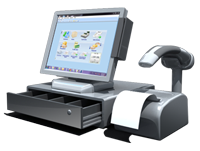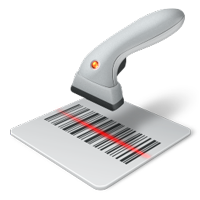
The retailing industry is one of the predominant users of POS terminals.
The retailing industry is one of the predominant users of POS terminals.
A retail point of sale system typically includes a cash register (which in recent times comprises a computer, monitor, cash drawer, receipt printer, customer display and a barcode scanner) and the majority of retail POS systems also include a debit/credit card reader.
It can also include a conveyor belt, weight scale, integrated credit card processing system, a signature capture device and a customer pin pad device.
More and more POS monitors use touch-screen technology for ease of use and a computer is built into the monitor chassis for what is referred to as an all-in-one unit.
The POS system software can typically handle myriad customer based functions such as sales, returns, exchanges, promotions, discounts and much more.
Expertise

Hospitality point-of-sales systems are computerized systems incorporating registers, computers and peripheral equipment, usually on a computer network to be used in restaurants, hair salons or hotels.
Like other point-of-sale systems, these systems keep track of sales, labor and payroll, and can generate records used in accounting and book keeping. They may be accessed remotely by restaurant corporate offices, troubleshooters and other authorized parties.
Point-of-sales systems have revolutionized the restaurant industry, particularly in the fast food sector. In the most recent technologies, registers are computers, sometimes with touch screens.
Typical restaurant POS software is able to create and print guest checks, print orders to kitchens and bars for preparation, process credit cards and other payment cards, and run reports. In addition, some systems implement wireless pagers and electronic signature-capture devices.